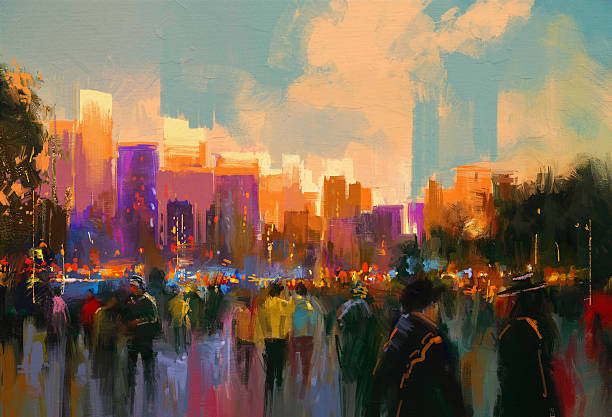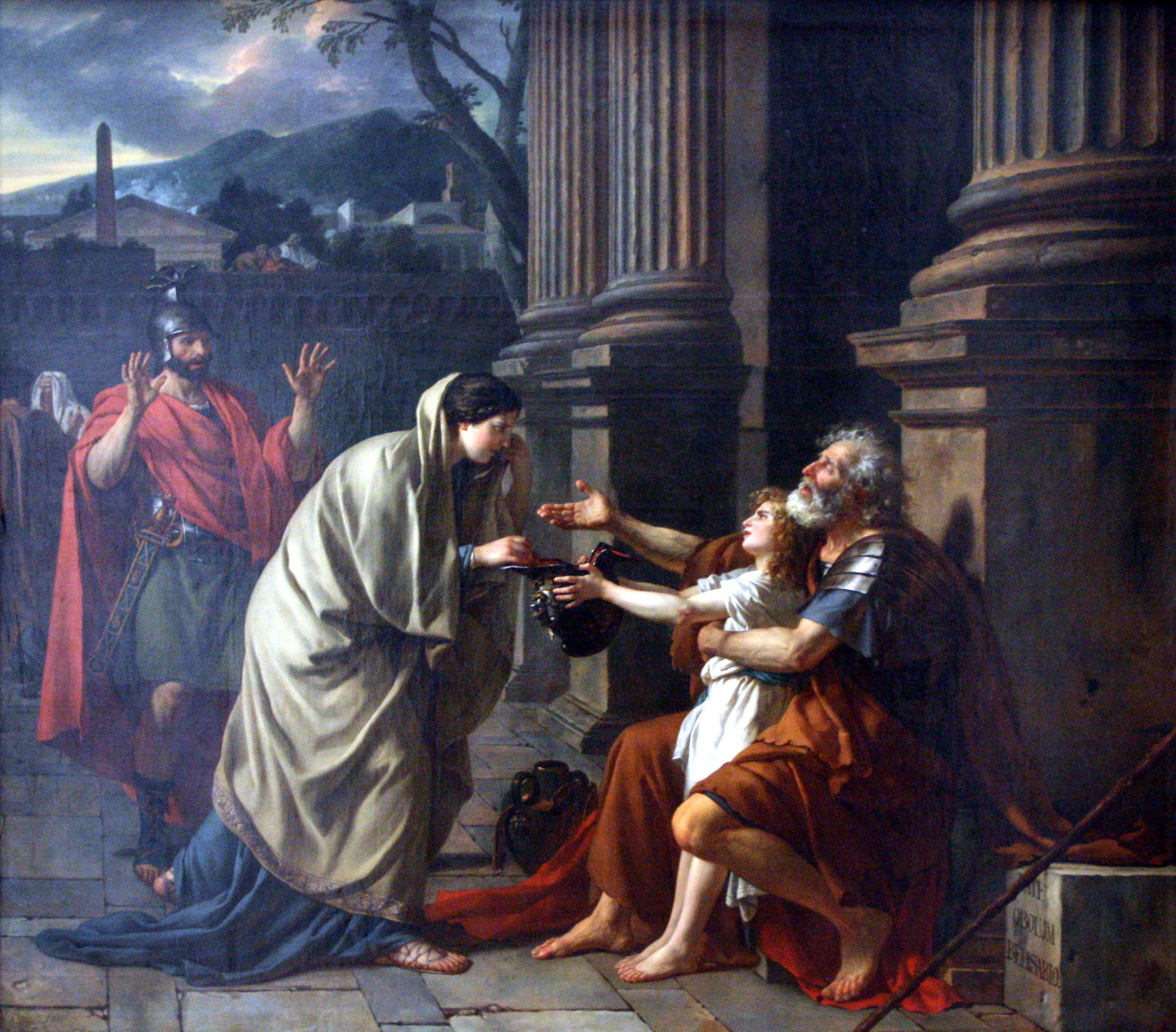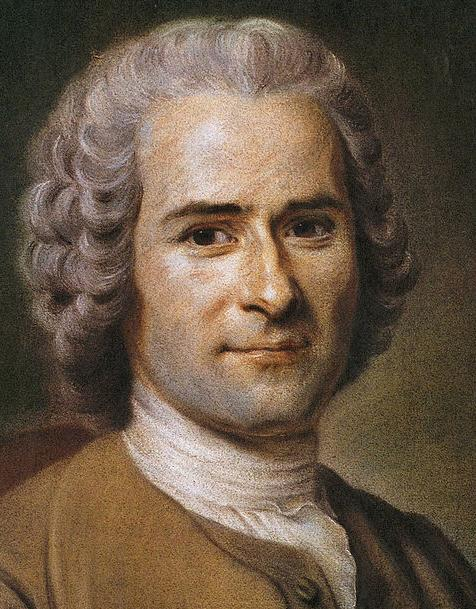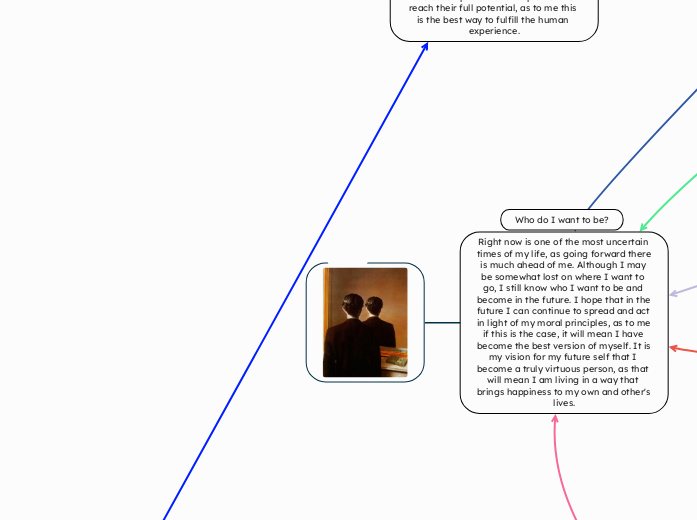My ideal society
Who do I want to be?
Throughout the course, I have examined moral principles and ethical standards that are seen in many belief systems worldwide. Learning about such principles has allowed me to understand my moral compass and beliefs, and I can now present a clear picture of what ethical and moral principles I abide by. The foundation of my moral beliefs is my view of good and evil, as I believe there is a concrete difference between good and evil in the world. I think that virtues such as kindness, giving and honesty are some of the things that are good in the world and that these values should be shared and practiced so that a universal moral standard can be formed and agreed upon. I strive to be as virtuous as I can every day so that I can feel purpose in following what I believe for the betterment of myself and others.

My Morals and Ethics
One of the first topics covered in HZT4U was answering the question “What is the meaning of life?”, at the beginning of the course I couldn't even think of an answer, but now I have a better idea of what gives me meaning. To me, the meaning of life has a simple answer, a life where I am happy day to day and find purpose in doing things that help myself and others. My idea of the meaning of life is simply a product of my experiences and knowledge, as being happy and having a purpose are things I strive to accomplish every day. To conclude, my idea of the meaning of life is to live a life where you are happy, and accomplished and help others to reach their full potential, as to me this is the best way to fulfill the human experience.

My existence
Right now is one of the most uncertain times of my life, as going forward there is much ahead of me. Although I may be somewhat lost on where I want to go, I still know who I want to be and become in the future. I hope that in the future I can continue to spread and act in light of my moral principles, as to me if this is the case, it will mean I have become the best version of myself. It is my vision for my future self that I become a truly virtuous person, as that will mean I am living in a way that brings happiness to my own and other's lives.

There are multiple times within HZT4U where I have discussed my idea of a perfect society, I think it's important to discuss this idea as it truly sheds light on where I stand morally. To me, the vision of a perfect society is one where there is a universal standard of good and evil as well as right and wrong. The universal moral standard then paves the way for the rights I would hope to see such as freedoms like freedom of speech, religion, language, protest, movement and the right to vote. With these rights and freedoms, I would hope that equality is the priority within society as I am a firm believer in equality for all. My society would create a place where everyone can be free, and equal and can be granted opportunity.

In the late 17th century, philosopher Auguste Comte coined the theory of Altruism in light of his philosophy. Altruism is a philosophical theory that focuses on the well-being and welfare of others before oneself. Within altruism, the idea is that an individual helps and cares for others as that is what they are ethically obligated to do. Examples of this could be showing initiative and helping others you see struggling in everyday life or just doing your best to help out in society.

Altruism
In the 4th century, St Augustine wrote about God's command and power within the world, these ideas layed the framework for what Divine command ethics are today. Divine Command ethics is a philosophical theory that essentially involves the idea that right and wrong actions are decided upon according to the commands of God. This means that religious believers take actions and act following what is considered proper according to God. This can be seen in life with the commandments in religions such as Christianity and the rulesets in Islam.

Divine command Ethics
Starting in the 17th century, philosophers Thomas Hobbes, John Locke and Jean Jacques Rousseau developed similar yet different ideas of the social contract which would be a concept still debated to this day. The Social contract theory is a theory of philosophy that involves the idea that people's actions within society follow a set of unwritten rules. These rules are agreed upon by all in the social contract and they are upheld and understood without having to be written down anywhere. Examples of the social contract in everyday life could include giving to charity or letting a pregnant woman have a seat on public transport.

The social contract
Deontology found its roots in the 18th century with the famous philosopher Immanuel Kant, who was the first to present deontology. Deontology is a philosophical theory that states that people are morally obligated to act according to a set of principles. The principles people act upon are wildly different, as with each belief system, comes separate rules and obligations. Examples of these rulesets and principles can be seen when people act in a manner they think is good such as donating to charity due to personal beliefs, or in a religion such as Christianity where believers are obligated to help the less fortunate.

Deontology
Philosopher Ayn Rand came up with the theory of objectivism starting in the 1940s, she created it through her novel writing. Objectivism is a philosophical theory that focuses on the self-interest of an individual as opposed to action for others. Essentially Objectivism favours concepts such as independence, self-interest and self-responsibility as these virtues and traits can accomplish the most for an individual. This way of thinking can be seen quite commonly in life with self-interest being supported in today's society as it is a competitive world that favours those who think about and for themselves.

